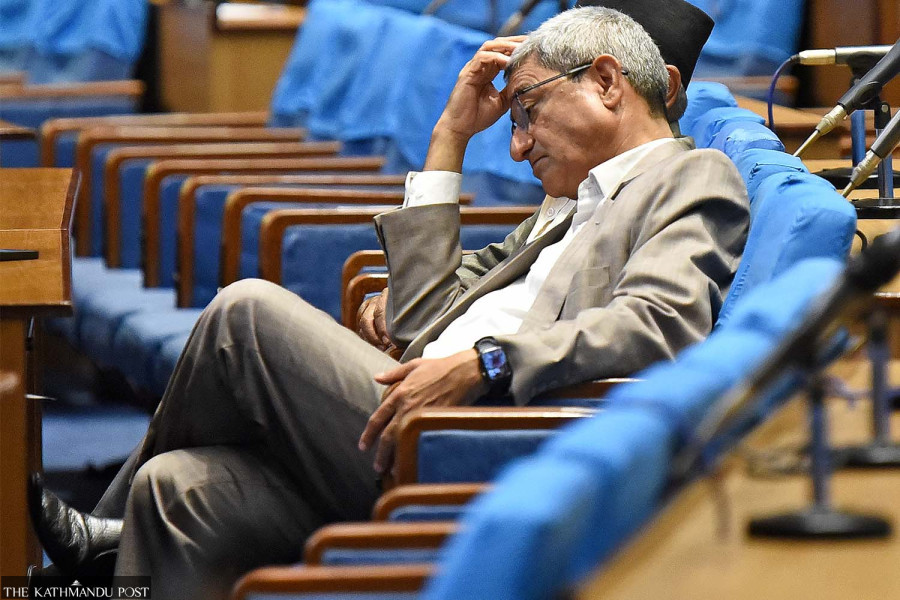Editorial
Low expectations
The new panel to probe the ‘visit visa’ scam fails to inspire trust. Yet there are ways to build confidence.
As stipulated in the two-point agreement reached between the ruling parties and the main opposition, the CPN (Maoist Centre), earlier this month, the government on Tuesday formed a probe panel to investigate the ‘visit visa scam’. But the panel’s formation couldn’t pacify the opposition parties protesting in the federal parliament, nor could it convince those closely observing this matter. This is important. The Rastriya Swatantra Party and the Rastriya Prajatantra Party—the fourth and fifth largest forces in the House of Representatives—had been protesting in Parliament demanding a powerful inquiry body to look into the matter. The two opposition parties didn’t stop their protest even after the signing of the two-point deal.
The RSP leaders appeared particularly unhappy after the panel’s formation under the leadership of former chief secretary Shankar Das Bairagi with joint secretaries of six ministries as members. They had been asking for either a parliamentary or a judicial inquiry. According to media reports, hundreds of Nepalis going abroad on visit visas (but who were actually looking to work in foreign countries) were paying immigration and other officials up to Rs50,000 under the table. A nexus of politicians, police officials and those with the immigration department, various ministries and foreign employment agencies, were profiting from the desperation of these men and women who were desperate to go abroad to earn their living.
Initial probe by the Commission for Investigation of the Abuse of Authority (CIAA) indicates involvement of powerful leaders. Opposition parties and even some observers say such a nexus involving the immigration department cannot function without the home minister’s knowledge. But then such activities are believed to be taking place even during the tenures of previous home ministers, be they from the Nepali Congress, the CPN-UML or the Maoist Centre. So the suspicion is that these parties have colluded to save each other. The way the Maoist Centre, which has led the home ministry multiple times, suddenly softened its stance on Lekhak’s resignation and independent probe, certainly seems suspicious.
Given its questionable authority, the Bairagi-led panel is unlikely to unearth anything substantive. It would be unrealistic to expect former and current civil servants to expose the involvement of powerful leaders—nor can they grill bureaucrats and security officials. The constitution of a panel under the leadership of a former judge with members having experience and expertise in investigation and with a powerful mandate would have made such a probe more credible. But that was not meant to be.
With the committee already formed, the onus lies on the government and Bairagi, who leads the team, to undertake a fair probe. Over the next few weeks, it should be clear enough whether or not the new committee is serious about the investigation, or it was formed just to deflect blame. Lekhak, a trusted lieutenant of Nepali Congress President Sher Bahadur Deuba, is considered a leader with a relatively clean image. If he is not involved in the visa scam, an investigation that is widely seen as impartial will clear his name. On the other hand, if the government is seen to be constantly meddling and influencing the committee’s work, or the committee is not seen to be working independently, Lekhak will always be under a cloud of suspicion—even if he is clean. Such a botched investigation will also further erode the government’s credibility.




 9.7°C Kathmandu
9.7°C Kathmandu














